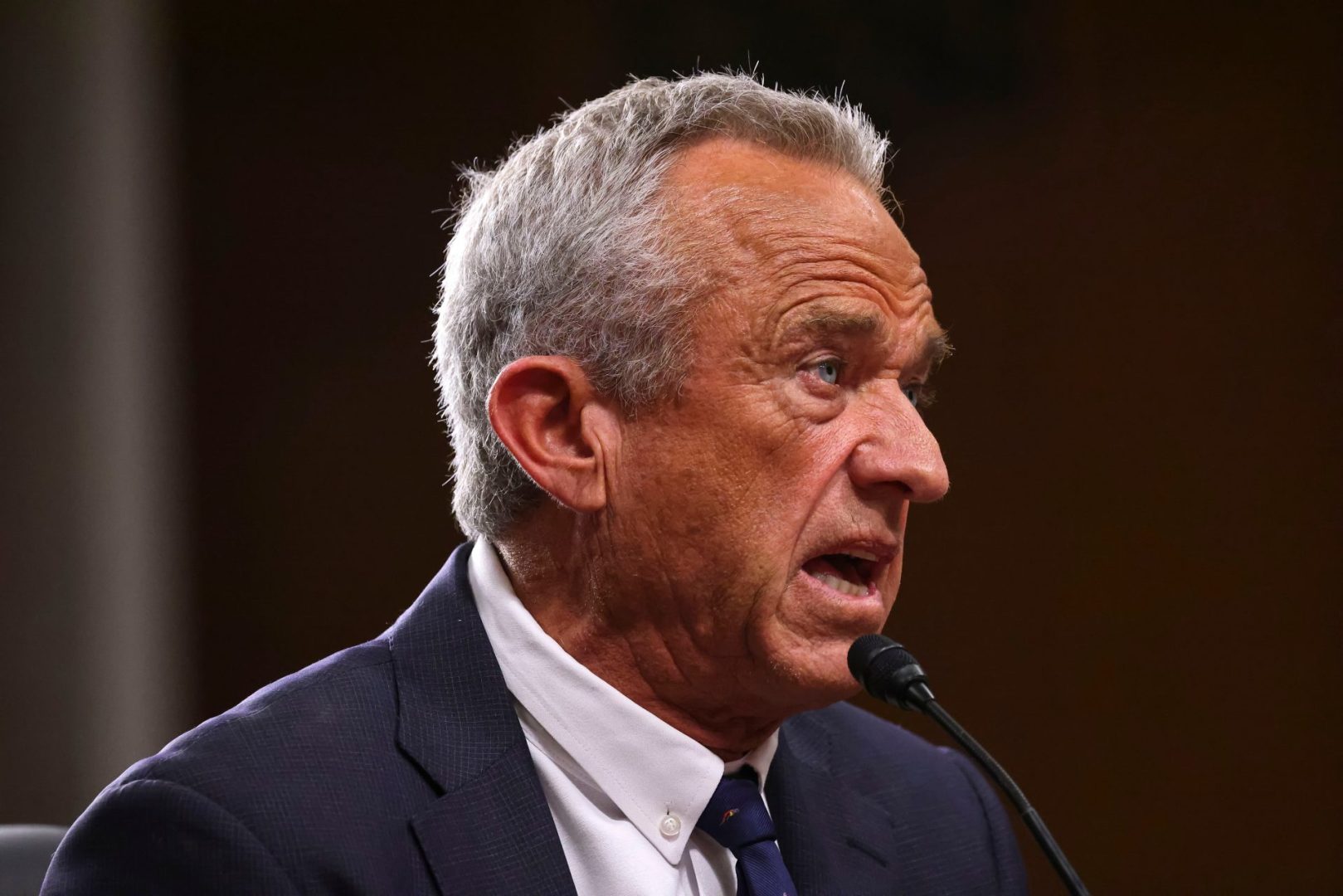Robert F. Kennedy Jr. made waves across Washington on Monday when he announced the complete dismissal of a crucial vaccine advisory committee, marking an unprecedented move that has drawn criticism from both health experts and fellow Republicans.
The Health and Human Services Secretary terminated the entire 17-member Advisory Committee on Immunization Practices in what he described as necessary housecleaning of a panel riddled with conflicts of interest. The committee, known as ACIP, has traditionally served as the backbone of federal vaccine policy, providing expert guidance to the Centers for Disease Control and Prevention on immunization schedules and coverage requirements.
Kennedy’s decision represents the first time in the committee’s history that an entire panel has been dismissed before completing their standard four-year terms. The move sends ripples through the medical community and raises questions about the future direction of America’s vaccine policy under the Trump administration.
The rationale behind the dismissal
Writing in a Wall Street Journal opinion piece, Kennedy outlined his reasoning for the sweeping personnel change. He characterized many current panel members as last-minute appointees from the previous Biden administration, arguing that without removing them, the Trump administration would have been unable to install a majority of new members until 2028.
The committee typically consists of pediatricians, epidemiologists, immunologists and other medical professionals who volunteer their expertise to guide national vaccine policy. Unlike political appointees, these positions have historically been filled based on scientific credentials rather than political affiliation.
Kennedy has long been a vocal critic of federal vaccine policies and has raised concerns about vaccine safety throughout his career. His appointment as HHS Secretary already signaled potential changes to how the federal government approaches immunization policy, but Monday’s announcement represents the most dramatic action taken to date.
Republican senators voice concerns
The dismissal has created tension within Republican ranks, with several senators expressing reservations about Kennedy’s approach. Senator Bill Cassidy of Louisiana, who chairs the Health, Education, Labor and Pensions Committee, had previously received assurances from Kennedy that ACIP would remain unchanged.
During Kennedy’s confirmation process, Cassidy voted in favor of the nomination after Kennedy pledged to consult with the senator on key vaccine advisory board appointments. The Louisiana Republican had delivered a February speech outlining these commitments, making Monday’s announcement particularly striking.
Following the dismissal, Cassidy took to social media to express his concerns about the potential consequences of the decision. He worried that the reconstituted panel might be filled with individuals who lack proper vaccine expertise and harbor unwarranted suspicions about immunizations.
The senator confirmed he spoke directly with Kennedy on Monday to discuss the situation, though he declined to provide details about their conversation when pressed by reporters. When asked whether he regretted supporting Kennedy’s nomination, Cassidy avoided giving a direct answer.
Bipartisan criticism emerges
Senator Susan Collins of Maine, known for her moderate Republican stance, also weighed in with criticism of Kennedy’s decision. She described the mass dismissal as excessive and raised questions about the necessity of removing every single committee member simultaneously.
Collins suggested that a more measured approach might have been appropriate, rather than the wholesale replacement of the entire advisory panel. Her comments reflect broader concerns among lawmakers about the potential implications of such dramatic personnel changes in crucial health policy roles.
Timeline pressures mount
The timing of Kennedy’s announcement creates additional pressure for the administration. The CDC committee is scheduled to convene on June 25-27 for important discussions about vaccinations for multiple diseases, including COVID-19, RSV, influenza, HPV and meningococcal disease.
HHS has confirmed that the meeting will proceed as planned, giving the department roughly two weeks to identify and appoint replacement members for the advisory panel. This compressed timeline raises questions about the thoroughness of the vetting process for new appointees and whether qualified candidates can be identified and confirmed in such a short period.
Recent policy changes signal broader shift
Kennedy’s committee dismissal comes on the heels of other significant changes to federal vaccine policy. Last week, he announced updates to the vaccine schedule without consulting ACIP, marking a departure from traditional practice where the committee’s recommendations typically guide such decisions.
These changes have already prompted resignations within the CDC, with one official stepping down Friday following modifications to COVID-19 vaccine recommendations. The departure suggests internal tensions within the health bureaucracy as Kennedy implements his vision for vaccine policy.
Medical community responds
Health leaders and medical institutions have moved quickly to defend the dismissed committee and its track record. The medical community has generally supported ACIP’s work over the years, viewing the panel as a crucial source of independent scientific expertise in vaccine policy decisions.
The Vaccine Integrity Project, launched earlier this year, has emerged as one voice in the debate over vaccine policy changes. The initiative was created specifically to address concerns about unfounded doubts being cast on well-studied vaccines by health leadership.
Transparency concerns raised
Kennedy has criticized ACIP for what he characterizes as insufficient transparency in its vaccine recommendations. He pointed to the committee’s recent consideration of narrowing COVID-19 vaccination recommendations for children as an example of problematic decision-making processes.
The committee had recently published detailed information about conflicts of interest and financial disclosures for its members covering the period from 2000 through 2024. Despite this transparency effort, Kennedy maintained that conflicts of interest remained problematic within the panel.
Looking ahead
As the June meeting approaches, attention will focus on who Kennedy selects to replace the dismissed committee members. The choices will likely signal the direction of vaccine policy under his leadership and could have lasting implications for public health recommendations.
The controversy surrounding Kennedy’s decision highlights the ongoing tensions between political oversight and scientific independence in health policy. How this balance is struck in the coming months will have significant implications for America’s approach to immunization and public health more broadly.
The unprecedented nature of the dismissal ensures that Kennedy’s actions will face continued scrutiny from Congress, the medical community, and public health advocates as the new committee takes shape.














